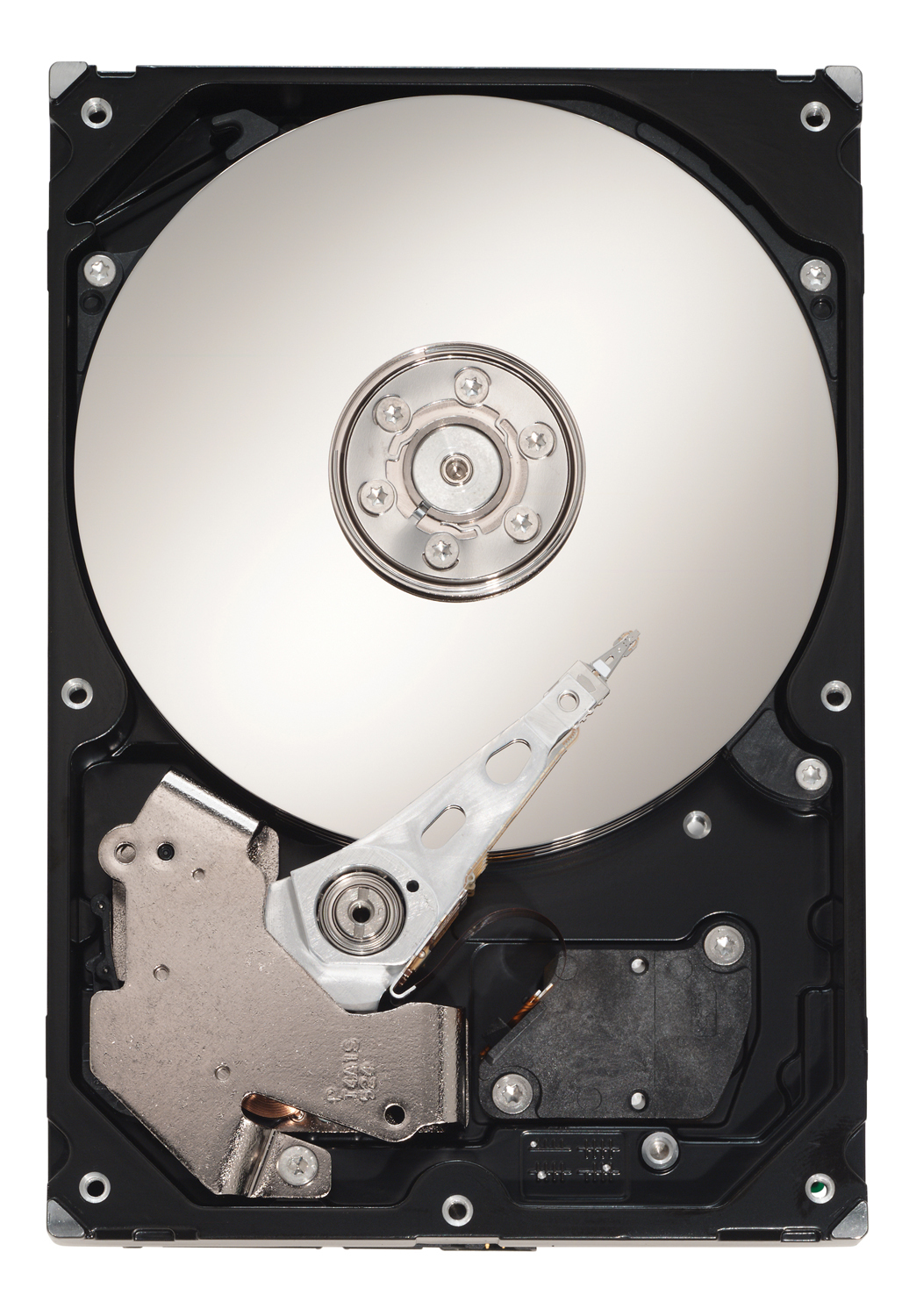Seagate's New 2 TB Hard Drive for Enterprises
Just as Western Digital did last week, it’s now Seagate’s turn to reveal its 2 TB offering.
Seagate pulled the wraps off its new line of 3.5-inch Constellation ES hard drives, available in 500 GB, 1 TB and 2 TB capacities. Although WD arrived first to the 2 TB finish line, Seagate’s race is on the enterprise track with an SAS interface -- as well as an SATA version.
Unlike WD’s 2 TB drive, Seagate’s keeping the focus on performance and boasts that its Constellation ES is “the world’s only 7200-rpm 3.5-inch hard drive providing up to 2TB of storage,” and “customers don’t have to sacrifice performance in order to gain the highest capacities.
Of course, it’s currently the world’s first announced 7200 RPM, 2 TB hard drive. There’s still plenty of time for the competition as the Constellation ES hard drives will ship in calendar Q3 2009.
Seagate also detailed a couple Constellation 2.5-inch hard drives in capacities of 160 GB and 500 GB with both 3 Gbps SATA and new SAS 2.0 interface running at 6 Gb/s speeds. Those we’ll get to see this quarter.
Get Tom's Hardware's best news and in-depth reviews, straight to your inbox.
-
Astara Ok -- Tom -- this is something you can maybe shed some light on.Reply
How am I to know what Seagate Drives to trust?
First it was 1.5TB drives. Then 1TB drives...then between 2 of my 750GB Seagate's dying, they also said it affected some 750GB drives. So now what do I believe in? These were all Seagate drives that had a 5-yr warrantee.
Color me naive (beige?), but I'd think that 5-yr warranty drives were should be among best in class for reliability -- i.e.l they should be as good (or equiv)...as Business Class.
But obviously something big went through the QA process. Are most of the drives we see NOT business class.
Is the *only* way to ensure good drives to go SAS? I thought businesses were going for SATA for density -- but as someone who's had 3 Seagate drives (1T, 2x750GB) drives go bad in the past 2 months, I'm more than a little disenchanted with the brand.
I tried a WD 1TB, 'Green' drive, but the 1 and only I tried was DOA -- so I went back with Seagate, which used to have a sterling reputation. But now? What drives are best for reliability? -- What drives can I buy and 'forget about them' until its time for a technology refresh?
Second question -- maybe some drive manufacturers already do this -- but I was wondering -- is it possible for a multi-plate drive to act like a Raid-0 or RAID-1? I.e. read/write to multiple heads on different but aligned platters to achieve faster speeds? I.e. if you have 4 platters, you'd interleave read/writes from each of the 4 platters to achieve 4x read or write speeds?
A*a
-
pochacco007 is it safe? with news that the 1.5tb and other size seagate drives failing, it tells you that it's not a good choice to buy from seagate. two wrongs don't exactly make a right you know.Reply -
chookman Considering this is a completely different class of product it would be safe to assume the inherent flaws of a different series don't carry over into this one. Besides the point that Seagate have released a firmware fix for the issues in these drives (although it doesn't fix already broken drives).Reply
These should be a good drive, but id like to see some reviews first. -
NishiGotanda I've never had a drive go bad on machines I've put together. However, I'm not surprised people out there are having problems, many people simply don't have a clue about how to properly handle a hard disk.Reply
I've seen colleagues stack drives on a table, putting them down like you put down a cup of coffee. Take an accelerometer to a drive when you try that - you can easily exceed the non-operating G-limit of 350 Gs. A drive is a lot safer once you've mounted it.
If you don't handle it properly, don't be surprised when it breaks. This goes for whatever brand you have out there... -
Turas I want to know when the SAS 2 controller cards will be out. I have not really been able to find any info out about them yet.Reply -
Spathi The history?... A while back Seagate bought Maxtor, before this ... Maxtor went bad when the bought Quantum, before this... Quantum pushed things a little too fast (although I never had one fail).Reply
I bought some 320gig Seagate drives at the time they bought Maxtor b/c I knew they would start releasing bad Maxtor drives. If you have one just make sure you cool it with fans heaps.
So just do some research and get a Seagate that is not from an old Maxtor factory or contains Maxtor components. I admit it is pretty hard to do that research sometimes.. my next drive will be a SSD -
These drives won't have enough throughput to exceed SATA 3.0Gb/s, so having a SAS 2.0 (6b/s) is not going to offer an improvement in performace.Reply
-
These Seagate drives NEVER existed and still do NOT exist 6 months later, I really can't wait any longer, so Seagate has lost another customer..Reply

